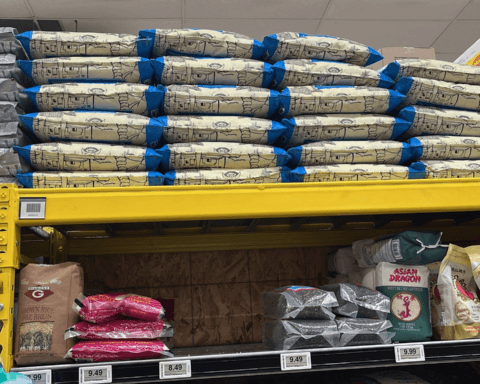Growing up in Canada, Harman Kaur experienced first-hand the hidden angst that torments many young women in transplanted South Asian families.
“I’ve tried my best to keep my culture alive but as I grew up, I was surrounded by other brown people who completely rejected their culture. I don’t understand why. I mean our culture, our language, our music, our religion is so beautiful,” states Harman, a Simon Fraser University student in Greater Vancouver.
She also noticed a lot of girl-on-girl hate in the Indian community and also realized that Indian girls do not have many role models to look up to and little or no representation in the media.
Tired of the Punjabi women stereotyping, Harman, whose family hails from Mohali in Punjab, decided to launch the ‘Chunni Project’ – a digital platform to empower Indian women, especially Punjabis.
The project is aimed at empowering Indian women by sharing inspiring stories and highlighting role models they can relate to.
“I saw a need for this because I believed that creating such a platform would empower Indian women. I was also very troubled by the stereotypes associated with them, and wanted to shatter these by providing stories from the source itself.
Another aim of The Chunni Project was to connect women all over the world. It has been successful in creating an online community where women from Canada, India, UK, Australia, and USA interact and empower each other.”
“I started this project with the hope that I would be able to help at least one woman feel empowered, but it has clicked beyond my expectations. What started off as a blog where different women shared their stories, turned into a space of creativity!
Writers and artists started to submit any work related to Indian women, and now The Chunni Project has become a space where anyone can come and discover new and talented female Indian art ists, poets, singers or others.”
“I have received positive feedback from women who are part of the project as well as those who follow it. As there is not much Indian representation in Western media, there should be a space where one can find out how resilient and talented Indian women are,” says Harman.
The name of the project is self-explanatory in a way. It symbolises Harman’s objective of helping the diaspora remain in touch with their culture.
“Giving a glimpse of her growing up years, Harman says, “When I was younger, my parents made sure that I did not stray from my roots. I learned how to read and write Punjabi at a very young age, and started learning about Sikhi at the same time. These two things kept me close to my roots. I am a writer…and my writing revolves around my religion and culture. Although I have had an easy time sticking to my roots, I recognize that this may not always be the case for every woman. There are many western influences, fear of mockery, and insecurities that may prevent women from visibly showing pride in their culture. I think that being a part of an online community, such as The Chunni Project, can empower women to not be afraid or embarrassed to stick to their roots.”
Harman’s next step is to advance from the online platform and organize physical events to further female empowerment.
For more information on the Chunni Project go to www.instagram.com/thechunniproject.




